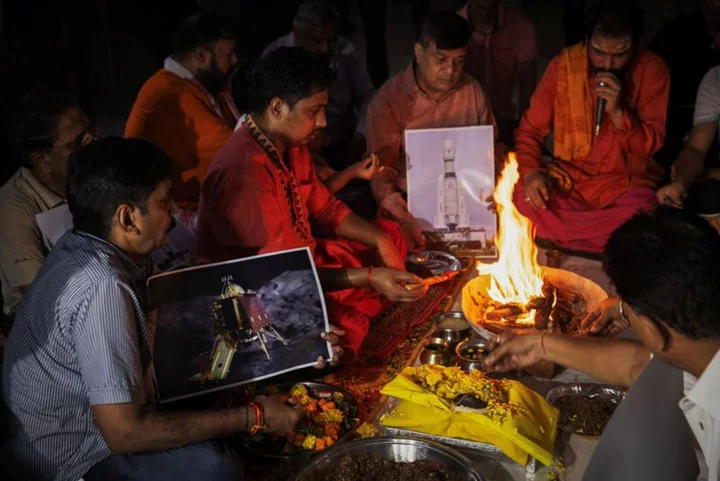MUMBAI India will make its second attempt to land on the moon on Wednesday, a mission seen as crucial to lunar exploration and the country's standing as a space power, just days after a similar Russian lander crashed.
The Indian Space Research Organisation's (ISRO) Chandrayaan-3 spacecraft will attempt to land on the lunar south pole about 6:04 p.m. local time (12:34 p.m. GMT) on Wednesday, less than a week after Russia's Luna-25 mission failed.
India's mission - Chandrayaan means "moon vehicle" in Hindi and Sanskrit - is its second attempt to land there. In 2019, ISRO's Chandrayaan-2 mission successfully deployed an orbiter but its lander crashed.
"Landing on the south pole (of the moon) would actually allow India to explore if there is water ice on the moon. And this is very important for cumulative data and science on the geology of the moon," said Carla Filotico, a partner and managing director at consultancy SpaceTec Partners.
Anticipation and excitement for the landing was feverish Wednesday, with banner headlines across newspapers, and news channels running countdown timers to the landing.
Prayers were held in temples, mosques and churches in the country, and schoolchildren waved the Indian tricolour as they waited for live-screenings of the landing.
Prime Minister Narendra Modi will watch the landing from South Africa, where he is attending the ongoing BRICS summit, media reported.
Rough terrain makes a south pole landing difficult, and a first landing would be historic. The region's water ice could supply fuel, oxygen and drinking water for future missions.
For India, a successful moon landing would mark its emergence as a space power as Prime Minister Narendra Modi's government looks to spur investment in private space launches and related satellite-based businesses.
(Writing by Shilpa Jamkhandikar. Editing by Gerry Doyle)

